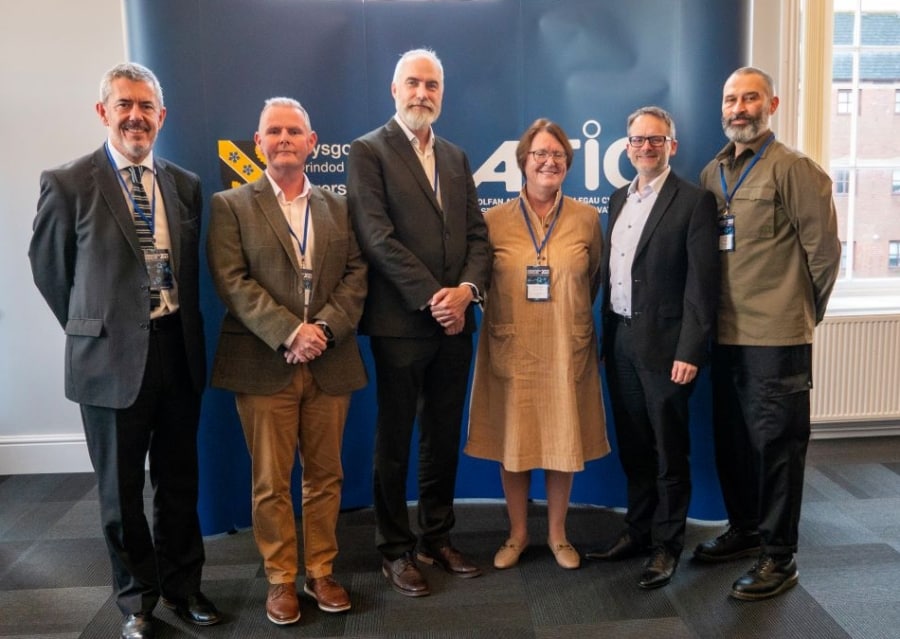Welsh University hosts symposium regarding the future of health technology
The University of Wales Trinity Saint David’s (UWTSD) Assistive Technologies Innovation Centre (ATiC) hosted a symposium in October, regarding the theme of co-creating the future of health technology.
The CATALYSE 2023 event was held in collaboration with Hywel Dda University Health Board and its TriTech Institute, along with a host of invited speakers, at Swansea’s Dylan Thomas Centre.
The keynote address was given by Dr Rob Orford, Chief Scientific Adviser for Health for Welsh Government, following a welcome by Professor Elwen Evans KC, UWTSD’s Vice-Chancellor, and Professor Phil Kloer, Medical Director and Deputy Chief Executive Officer, Hywel Dda University Health Board.
Professor Chris Hopkins, Head of Innovation and the TriTech Institute, Hywel Dda University Health Board, and ATiC Clinical Director, UWTSD, said: “This third symposium exemplified how health boards, social care, academia, and industry can work in partnership to develop and evaluate innovative technologies, to understand if improved safety, efficiencies, and better patient outcomes can be delivered at scale.
“We are delighted to be working with all partners, sharing, and learning how we can all add value together for our communities across Wales.”
The symposium’s four themed sessions included presentations on Co-creation and Partnerships; Immersive Technology; Medical Technology; and Digital Technology and Big Data, with invited speakers from Wales’s health and higher education sectors, and UK and internationally based enterprises including Bloom Standard Inc, USA and Cyberdyne Inc, Japan.
Digital Health and Care Wales (DHCW), the national organisation building and designing digital services for health and care in Wales, explored a data hackathon challenge as part of the symposium’s programme, during the Digital Technology and Big Data session.
DHCW will host the hackathon event in the near future, in which teams will be challenged to tackle specific problems and provide new insights in the area of healthcare, based on data which is routine collected by the NHS.
Digital Health Ecosystem Wales (DHEW), a collaboration between Life Sciences Hub Wales and Digital Health and Care Wales, brings together industry, clinicians, policy makers, academics, innovators and funders to create an environment of digital innovation in Welsh healthcare.
In a dedicated session around Immersive Technology, the DHEW team highlighted a new initiative to establish a pan-Wales special interest group in this field.
Professor Elwen Evans, KC, Vice-Chancellor of UWTSD, said: “We were delighted to partner with Hywel Dda University Health Board and the TriTech Institute for this exciting symposium, and to welcome Digital Health and Care Wales and Digital Health Ecosystem Wales to lead two of the sessions, which again strengthens our collaborative links.
“It was an excellent opportunity to showcase how collaboration between academia, NHS Wales, and industry can deliver real benefits and better outcomes for patients, as well as drive economic growth.
“This collaborative and applied approach is central to the University’s research and innovation strategy, and it highlights the vital role that universities play in driving innovation in Wales and beyond, securing our future prosperity.”
Professor Phil Kloer, Medical Director and Deputy Chief Executive Officer, Hywel Dda University Health Board, said: “Our partnership with the University of Wales Trinity Saint David goes from strength to strength.
“The CATALYSE symposium and our collaborative efforts in respect of the TriTech Institute provide perhaps the best examples of what can be achieved when the NHS, universities, and industry collaborate to improve healthcare and patient outcomes.
“We will only confront the health challenges we face as a nation if we embrace both technical and social innovation. CATALYSE 2023 provided the perfect opportunity to do just that.”
Multiple organisations from across the Midlands are joining the University of Birmingham in a £14 million project to drive new healthcare technologies towards commercialisation.



